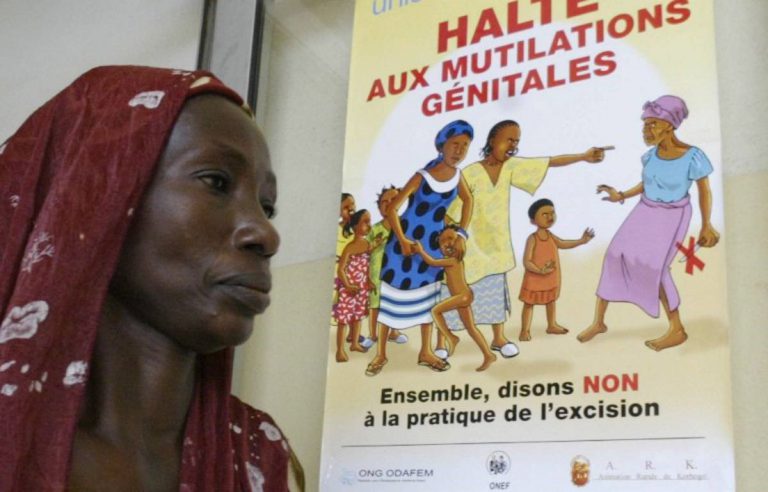
More than 16 years after the entry into force of the Family Code, and almost a decade after the advent of the new Constitution, underage marriage continues to be a problem. The figures from the study by the Rights & Justice association attest to this. Unveiled on World Sexual Exploitation Day, celebrated on March 4, these figures denote genuine social ill-being.
In 2018, 32,000 marriage proposals from minors were registered in Morocco. According to the Droit & Justice association, the marriage applications of minors and the corresponding acts have evolved irregularly. “The percentage ratio of marriage certificates for minors to the number of requests made is between 87.49% in 2006 (which is the upper limit) and 79.47% in 2018 (which is the lower limit) passing through the minimum level of 68.10% in 2016. ”
The study carried out on a sample of 627 respondents in various regions of the Kingdom (408 in rural areas against 207 in urban areas) over the period from 2006 to 2018, reveals that 319,177 of marriage applications filed between 2009 and 2018 were granted. In addition, the age of applicants can be as low as 14 years. Between 2007-2018, the average number of underage brides aged 14 was 359 “Although this represents only 1% of the total number of underage marriages, it should be noted that this figure remains too high”, estimates the NGO . The 2016-2017 period is extraordinary with extremely high figures while the 2018 figure is exceptionally low with barely 9 requests. Ditto for girls aged 15. The number of requests is abnormally high for the years 2016-2017 with respectively 7,070 and 7,060 requests. Same observation among 16-year-olds, 2017 recorded the highest rate with 10,744 requests. Finally, 2/3 of minors who married between 2007 and 2017 were 17 years old.
We must toughen the law
As a reminder, marital capacity is acquired for boys and girls enjoying their mental faculties at the age of eighteen Gregorian years, as stipulated in article 19 of the Family Code. Nevertheless, the legislator grants, by means of article 20, to the judge the possibility of derogating from this provision. “The family judge in charge of marriage may authorize the marriage of the boy and the girl before the age of marital capacity provided for in Article 19, by reasoned decision specifying the interest and the reasons justifying this marriage. He will have heard, beforehand, the parents of the minor or his legal representative. Likewise, he will have had a medical expertise or a social investigation carried out ”, stipulates article 20 of the same Code. And this is the whole difficulty. Judges thus have a broad power to assess the facts and to grant or not the authorization of marriage. While the legislator has provided for this derogation, a priori, to protect children born of an out-of-wedlock relationship, it often happens, according to women’s associations, that subterfuge is used to circumvent the law. Believing the judges to be too permissive, many women’s associations are calling for a reform of article 20, in order to limit the “damage” of early marriages. The exception would have become the rule, according to these associations. They believe that setting a minimum age for marriage would be a way to fight this scourge which tends to increase the precariousness of women. “This is an unnatural act that creates an environment conducive to more situations of injustice and vulnerability,” said the president of the Rights & Justice association.
With a rate of 19.86%, the Casablanca-Settat region is the most affected by the phenomenon. But overall, over the past 12 years, the number of marriage requests in rural areas has exceeded that of urban marriages. The marriage with “la Fatiha” continues, with a percentage of 6.56% in urban areas against 13% in rural areas. So what are the reasons behind this situation? Is this a legal problem, a cultural, social or economic problem? Without doubt all of this at the same time!


Legal recommendations
- Prohibit the marriage of minors under 18 in article 20 of the Family Code and delete article 21.
- Specify in article 16 that the contract or marriage certificate is the only document accepted to prove the marriage.
- Penalize customary marriage in article 475 of the Penal Code.
- Include in Law No. 27-14 the penalties for specific cases of relationship between the victim and the family, parents, spouse or relatives who may be complicit in trafficking.
Increased precariousness
Morocco’s high Gender Inequality Index (0.494), along with economic and intellectual misery, are among the main causes of this situation, according to many observers. Dropping out of school could be both a cause and a consequence of the marriage of underage girls. “The use of marriage for underage girls is more linked to lack of activity and vulnerability regardless of place of residence, moreover the difference between urban and rural areas is negligible,” the survey revealed. Girls in rural areas are often forced to drop out of school at the end of primary school for many reasons (landlocked regions, lack of nearby establishments, lack of means, transport difficulties, parental concerns, harsh climate, etc.).
Thus, the daughter quickly becomes a burden in many families, in addition to being a source of worry (what will we say? The risk of rape, etc.). “Marriage in itself is perceived as a mode of redistribution of social and financial charges, therefore, it represents a necessity in households where the standard of living is more or less precarious”, explains Mohamed El Bakir, general secretary of the Rights & Justice association.
Education, both cause and consequence
Once again, education seems to be at the heart of this problem. If parents haven’t had the chance to go to school, they don’t have the tools to measure the severity of early marriage for children. Many parents know more or less about their rights and even less those of their children. They ignore that a person is considered a child until the age of 18 and that a child’s place is on school benches. They also do not know much about the International Convention on the Rights of the Child ratified by Morocco in 1993. Even the Family Code, they have a very superficial knowledge (86% thanks to TV and 7% thanks to the radio). It is therefore obvious that they are not in a position to protect the rights of their children. How can it be otherwise if they themselves have not been able to enjoy a basic right: Education.
The majority of respondents’ parents are illiterate with 74.35%, concentrated in the Marrakech-Casa-Safi-Settat regions. Parents therefore mistakenly believe that the best way to protect their daughters is to marry them. Sadly, they do not know that by marrying their daughters at an early age, they condemn them to follow the same destiny as them. Almost 72% of mothers of underage brides were also when they got married, and the circle never comes full circle, the same scenario continues. We thus find ourselves with sacrificed generations. Although they think the opposite! The girls seem convinced that marriage is good for them. “The majority of the girls surveyed said they were very consenting and still believe an early marriage is a good choice.”



UN perspective
According to the UN, the phenomenon of underage marriage is universal. It affects nearly 39,000 girls every day around the world. As part of the Millennium Development Goals, the phenomenon was supposed to disappear in 2015, but for the time being, it continues to be rife in many countries, especially in developing countries. The first consequence of this scourge is dropping out of school. As a result, the organization believes that education remains an essential factor in protecting against child marriage and that empowerment is the only way for them to choose when and to whom they wish to marry. “Child marriage is a horrendous violation of human rights that robs young girls of their education, health and future,” the UN said.
Excluded and exploited
No life plan, no future prospects, these girls will simply reproduce the same pattern as their mothers. Excluded from economic and private opportunities, they cannot claim a better future, any autonomy or independence. However, they are exploited for more than one reason. Beyond sexual exploitation, they are subject to economic exploitation without even knowing it. 99% of women in rural areas engage in productive activities (agricultural activities, carpet weaving, etc.), while ignoring that they are thus contributing to the economy of their home. These women spend, on average, more than 7 hours a day outside the home, especially in the fields. In addition to household chores, they go to the fields, cut and transport wood, fetch water … City dwellers are not better off. Constrained to household chores, they often sink into psychological problems, because of social pressure, and conjugal violence in some cases.
Violation of rights
While the Constitution stipulates equal opportunity, these children cannot claim this equity. They are excluded from the outset, the path being drawn from the outset. It is an injustice and even social violence that these girls are subjected to when they are barely beginning their lives. Some observers go even further by qualifying underage marriage as an act of legalized pedophilia or human trafficking.
Underage marriage has serious consequences, not only for these girls but for society as a whole. The physical and psychological consequences are not the least in these women. Confronted with the difficulties of married life, the management of the household, the education of children, … while they have not even reached adulthood, these women risk according to the practitioners of severe nervous breakdowns. . Almost 56% of the total of people targeted by the Rights & Justice survey had their first pregnancy before the age of 18. That is to say the gravity of the situation. Intellectually, emotionally (in most cases) and also material (in some cases), they are weakened. According to the NGO Printemps de la dignité, the marriage of underage girls is one of the main causes of divorce. They are thus exposed to further precariousness, exploitation, pressure and violence. Hence the urgent need to reform the Family Code. Article 20 should, according to women’s rights defenders, be repealed, or at least codified.




